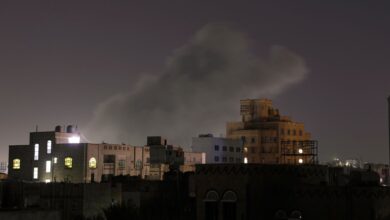Narendra Modi: From aggressive opponent to restless leader

Narendra Modi was an aggressive opponent in 2013. He is an impatient incumbent in 2018.
A comparison of two Independence Day speeches he delivered in the run up to the two general elections — 2014 and 2019 — reveals some striking similarities and glaring differences in his approach to issues such as corruption, nepotism, job creation and the economy, among others.
He was the Gujarat chief minister in 2013, and, as BJP’s campaign chief, the PM-in-waiting. The Lok Sabha elections were due in 2014.
Within hours of the then prime minister, Manmohan Singh, delivering his address from the ramparts of the Red Fort, Modi was ready with a counter-address at Lalan College in Bhuj. His 52-minute-long speech was telecast across channels.
“Is it not true that we still are living in state of mental slavery?” he asked the audience. At that time, the government was reeling from a string of corruption scandals, the economy was sluggish, inflation was on the rise, and job-creation was not keeping pace with demand. Pakistan had recently killed five army jawans and China had intruded on India’s borders. In response to these issues, Modi was aggressive.
“The President, yesterday, while mentioning Pakistan, said that there is a limit to how much one can bear. The President has given a very grave indication in speech about the issue. I was hoping that Mr Prime Minister would have given Mr President an assurance,” Modi said in his speech.
There should be a definite line beyond which we should not bear things, he said. “…India’s defence policy is in a shambles. Look at what China did: they entered our territories and showed their strength as well as their intentions and the nation was a silent observer,” he added.
He then moved on to corruption. “It used to be ‘bhai-bhatija’ (brother-nephew) then it became ‘mama-bhanja’ (uncle-nephew) and now it is the ‘saas, bahu aur damad’ (mother-in-law, daughter-in-law, son-in-law) episodes running on the TV serial titled corruption in India,” he said, alluding to nepotism. The nation, he argued, needed freedom from the rule of dynasty, feeling of insecurity, illiteracy, and blind faith.
Manmohan Singh, Modi said, did not motivate people of the country in his speech but praised only “one family” — a reference to Sonia Gandhi and Rahul Gandhi being at the helm of the Congress. Singh’s devotion to one family, and not the nation, is a cause of worry for the entire nation, Modi insisted.
He mixed that accusation with another claim that Singh’s speech was no different from Jawaharlal Nehru’s 60 years ago.
His point: nothing had changed under the Congress’s long rule. “Who is responsible for the falling value of the rupee?” Modi asked, suggesting that the PM should have said how the rupee can be strengthened, and said India’s youth were unemployed, the economy was in an abysmal condition, the poor were hungry, and the government is non-functional. Crowned prime minister in 2014, Modi faces another national election next year. On Wednesday morning, he presented a report card of the last four-and-a-half years and touched upon some issues he raised in 2013 while skipping some others.
“We are proud of what we have achieved, and at the same time, we also have to look at where we have come from. That is when we will realise the remarkable strides the nation has made,” Modi said. He added that if India had continued at the same pace at which toilets were being built, optical fibre cable was being laid and gas connections were being distributed in 2013, it would have taken decades to complete them.
Modi did not speak about why the rupee has devalued to a historic low now, or what actions he proposes to take to correct it; but he claimed that Delhi’s streets are now free from power brokers. “In today’s India, there is no place for nepotism,” he said.
Modi did not speak about criticism that fewer jobs were being created, except in a reference to loans under the government’s Mudra scheme, but said he was aiming for housing, water, power, health, vocational skills, sanitation and other such basic facilities for every citizen.
“We want to progress more. There is no question of stopping or getting tired on the way,” he said, adding that he was “impatient” to take India ahead of many other nations, “eager” to provide health care to the poor and see to it that India used its resources and potential optimally. He contrasted the “policy paralysis” of the previous government with the “swift decisions” being taken by his government.
Modi touched upon three broad points in his speech — corruption-free governance, welfare of the economically and socially backward sections, and a hunger to achieve larger goals. These three broad points will form the basis of the BJP’s campaign next year — highlighting taint-free governance, building new electoral constituencies through welfare schemes, and addressing any disenchantment with the message that the PM’s intentions were right even if there were some shortcomings.







